
На сайте используются cookie файлы
The site uses cookie files
Данный сайт имеет возрастное ограничение!
This site has age restrictions!
Я подтверждаю, что мне, увы, уже давно исполнилось 18 лет
Veronika Busel, Wine Marketing Manager, Wine Writer and Managing Partner at the Wine Travel Awards (WTA), has recently had a chance to interview Robert Joseph, WTA judge, consultant, co-owner le Grand Noir wines, public speaker, co-presenter of the Real Business of Wine and Thirst Fursday winecasts, Co-Strategist at 5forests.
I did a book on wine tourism about 15 years ago and I have 3 Ferraris on the basis of the money I made writing that book… No. It is a lie (smiling). That book did not sell very well. Maybe my book was not very good, also no… but the truth is that there are not many books on wine tourism that became very successful. So I try to look at things in a very simple way. I pay attention to how many books are in the shops, and what are their subjects. That suggests me that if something is interesting for people they will buy a book about it. People still buy books obviously.
So when I was in New York, a long time ago, I remember being in a book store where there were more books on etiquette then on wine. Now many wine people will find it strange, but actually, to a lot of people in America knowing how to hold your fork and knife, how to talk to the queen or a judge or someone else is more important than knowing about cabernet sauvignon or whatever grape.
So to me everything is about content. For us in the wine industry, wine tourism is really important, for most people outside of it – it is not. If you actually look at it, most of the people do not do wine tourism in the way how they do golf tourism or garden tourism, sailing tourism, fishing, hunting, etc. You go there with one or a couple of your friends, and they make some plan like “firstly we will go to this or that garden, then golf, etc.”. That is what quite a number of people do.

Wine for most people is one of the things in which they are interested to a vary extent. To me, when we think about wine tourism, the way how we should look to it is as we are competing with a cathedral, with a museum, with a beach, etc. So I wake up in the morning, I am on holiday or travelling on business, I have half a day free, what should I do with that time? I will ask at the desk of the hotel what is happening around here. And if I am at Sydney, Australia, they may suggest me to visit the vineyards, also beach or mountains. But I will do the vineyards. And then, maybe, I will do it again if I enjoy the experience.
The picture I just draw – there is me as an adult, maybe not interested in wine. People come with their families. Will my 12-year-old child be interested to visit vineyards with me? Some wineries might be not very welcoming to the child. Or if travel with my partner. Does my partner want to go to the winery? Maybe my partner will choose to go shopping, I don’t know. We have this idea that wine tourism is the answer to everything.
I was in a conference in Australia and one of the other speakers organized wine tours to the Hunter Valley, which is a lovely region with very good wines. And he said that the average wine tourist wants to visit one and a half wineries. This is an average, obviously. So it is between one and two. He told that, very often, people want to visit wineries with him. If the second experience is very different to the first one, they want to see it too, if the second winery is like the first one and have very similar experiences, actually, they might not want to visit it. Most people visit one cathedral, and if they are not particularly interested in cathedrals the are fine to visit just one. Same thing about wine tourism. Wine tourism is tourism where the wine is part of the experience. We are in the entertainment business territory. We have to think of ways to entertain everybody, not only the person that is interested and has knowledge in wines. We need to think of the audience, will they go with their partners or children, who will drive the car after the tasting and so on. We need to make this experience as a very attractive way to go help them with their decision to check it, and even better if they want to visit it again. So there is not just wine there, there are other things.
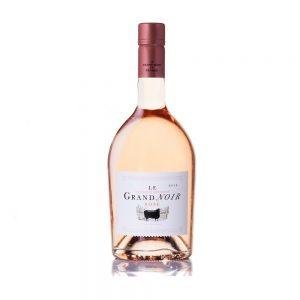
But also in terms of the wine, because wine is obviously very important for the experience, having the same wine at the winery as you have everywhere else it does not give a particularly special experience. You need to make your wine offer unique. To have these recommendations afterwards, to go to that particularly winery to taste some particular wines. Maybe special vintages, maybe special cuvee, make it interesting to people who are particularly interested in wines. Create this special experience for them. And not all wineries do that unfortunately. It is extremely important to make it possible to buy your wine at the estate. This, by the way, helps with the problem of competing with re-sellers.
Second thing. Are you capturing the names and the information about people who visit your winery? Not everyone does that. Do you then follow them up with good communications? Not everybody does that. And lastly, and very important, is to use wine tourism to do something that the wine industry doesn’t do enough, which is research. The wine industry historically does not do much research.
F.e., I make a wine, like my father did. I did a label, and it was designed by someone from family, I put my wine on the table during visits, people come taste it and they buy it if they like it, if they don’t like they will not buy. So what if I will use this opportunity to experiment. What if I make a special blend, with a couple of barrels. More oaky, less oaky, maybe to put some bubbles just to 1000 bottles, maybe I will try to play with different labels, and maybe I will put different prices, maybe these prices will be different for selected days. And then I look and research, is it more interesting? Maybe people enjoy some special label or cuvee that I just created to build this experience. And you know what, this will cost nothing. But if you go to a research agency they will charge you thousands of dollars to put 8 to 12 people in a room to research how they perceive your wines or experience. And then you will have to make big business decisions just based on one of such groups, when in your winery, potentially, you may see one hundred people a week, so at the end you will much more precisely know what people are more genuinely interested in visiting your winery.
We are so fortunate today. God in the form of his representative on Earth, Mr. Mark Zuckerberg, gave us Instagram. Instagram is a gift to any business, YouTube is another gift by the way. If you create and have an interesting experience to offer now you can easily show it to the public. Not only you can show your offer to people but you can encourage people to help your experience, to share and promote it within their friends or audience that might be interested in your experience. If the experience is interesting, none of this is impossible.
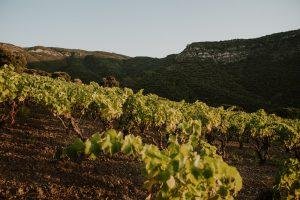
So, if you have a boring winery with some barrels and some bottles, if you are trying to sell just 5000 to 10 000 bottles of wine per year, it may be enough to have just these stable customers of yours, but when you sell or wish to sell more, hundreds, thousands or a million, your communication needs a more sophisticated strategy, it must have good content.
F.e. I saw in China how good they are with their wine tourism. They like to put some interesting sculptures in their vineyards, something you need to explore, to photograph, so just use their experience and make something interesting, it could be your thing, but make it different, worth exploring. Give people something, amaze them.
Second, another thing that we have been given is virtual reality. Now people can experience a lot of what you are doing without being physically present at your estate. So again, it worth thinking of it, to implement this technology to create your experience. And by the way it is not always expensive, you can make it almost cheap, buy some camera for 300 dollars which will allow you to do this type of experience.
One thing that I am thinking right now for my wine/winery is to do 3D visits in the vineyards, and to be able to show these experiences at the shops where my wine is. You can find my wines in the shops in Moscow, so my idea is to give customers the opportunity to visit the vineyards while standing in the shop. Honestly, I know that not all people will be interested to check it. Most people go to the shop, buy wine quickly, while their cars are just outside or maybe their child is waiting or whatever. But some people will love it. And one person having this experience, buys my wine, takes it home, and will tell about the experience or what he knew over a friends’ dinner. The important here is to have something special to remember, like “You know, I saw these vineyards, and there was a fox!” (I will tell you about the wine fox later).
But here, even more importantly, that manager of the shop will check this 3D experience. And then he will have better arguments and more understanding to sell my wine.
Third. Learn from other people. Of course, you can pay consultants, people like me, but also you can learn without big investment. Just travel, read good books, look around and notice what other people are doing.
And now I will tell you about the wine fox. I was in Switzerland last year and one winery that I visited simply put a 360-degree camera exposing their vineyards. So for 24/7 you can see what happens in the vineyards. It is very boring! Ohhh, what?! There is a fox, wine fox! “Oh, I have just saw this fox in the vineyards again!” Vineyards are a bit boring, but the fox is cute, will she return tomorrow? Then you can continuously post on Instagram telling something like “Oh, just look who is back to our vineyards!” Could be a wonderful sunrise, or sunset, but you need to have something. Maybe you do special beautiful decorated lunches there, at the vineyards, make it interesting, make people want to come back. And use these new tools of communication and some creativity. It is actually not hard, it is easy and this is something you can do. The problem is – maybe you do not have a fox. So simply find it or make up something else! (Smiling).
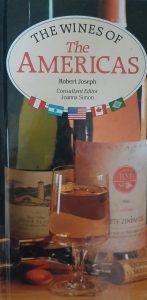
I did a book last year. It was not a cookery book, but it has recipes in it. This was a championship in Bordeaux. We wanted to express that these 2 young families running a business there through their gastronomical preferences, what they do in different times of the year. We did this book, printed 8 000 paper copies that we sell in the shop, and then we made 10 000 e-books, it cost money to create a book of course, but every time anyone wants an e-book it cost nothing.
So we can do 100 000 of e-books, we can do it in Chinese, we can do it in German, Tai and so on! Next project I am working on is combining e-books with videos, so I can actually go and visit all these places mentioned in book through videos, then I am working on a next project, and it will be about 3D experiences in the e-book! And you know what, this is not science fiction, this is not millions of dollars. What is great is that all of this is available to wineries as a tool as well. What is fascinating to me, all these small wineries who do a small amount of wine with limited budget today, they can compete with the biggest wineries in the world doing this type of things.
Lastly what I want to add, we have a problem in wine tourism: wine tourism by itself is questionable. I travel a lot in my life, I visit different countries giving my presentation. Could I do it simply using Zoom? I believe it won’t be the same. Oh, maybe I can do it with my hologram? We have already seen this. It is already possible. At the moment, it is very expensive, at the moment it is not really practical, but I believe it is coming. I believe in 5 years or early it will be normal. You know what, we need to start thinking of that kind of things.
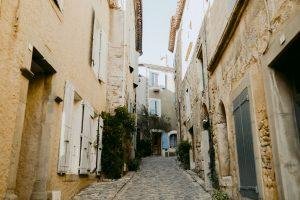
There are sommeliers and there are bloggers. These are two different things. They are different animals. Lions and tigers look like similar creatures, but they are not. Even though they are doing similar types of things, if you like, they are not the same. So what is the difference between a blogger, a wine journalist and a sommelier? Bloggers are passionate about wine; they want to communicate this passion to whoever. Journalists may or not be so passionate about wines, they do pretty similar things and they are paid for it. They are sometimes slightly competing with each other and maybe they will argue on twitter. But they do not so much follow each other. For example, English wine writers probably won´t follow Danish wine writers. They can only pay attention to each other when some scandal in the industry is happening.
Sommeliers are different. They are swimming in different waters. Most sommeliers are thinking about the next job. And a beautiful thing about being a sommelier is that they are owning a wonderful and very portable skill. Today I am working in Copenhagen and I am applying for a job in Beijing. I will go to Beijing and then I will go somewhere else. And if I am lucky, I become a group sommelier. How do I apply for this job? How will I build my career as a sommelier? I need to go to competitions. What do I do to enter this competition and make sure that I can win this competition? I read what other cool sommeliers are saying, where these sommeliers are going, what are they following, what are they saying online. So at the end it is about job application, personal career and opportunities. Every time a recognized sommelier puts something on their Instagram or blog it is like demonstrating their skills, it is a job application. Every time a sommelier puts something on Instagram they are sending a message to share with some other sommeliers working in different parts of the world: “Oh, this guy knows something about Albanian wine in his restaurant in Copenhagen!”, “Oh, this guy knows everything about natural wines. Maybe we should pay attention to him!”
There is already a community of sommeliers. If there are sommeliers, let’s say, in Eastern Europe who are not communicating with sommeliers outside of Eastern Europe, they are just not playing the game. We can encourage them, and the WTA model can be a very good way to encourage them.
And about bloggers? Yes, they might be important for the industry development. But don’t forget we have Tripadvisor, we have Vivino. There is no reason why Vivino will not shortly become involved in wine tourism. If there is money in it, they will be there.
Summing up, I think this word-of-mouth spread will come from different places, not only because of influencers, sommeliers, journalists, bloggers. But bloggers, and I am very positive about it, definitely have potential. But I do not think that we can fly to the moon in one day.
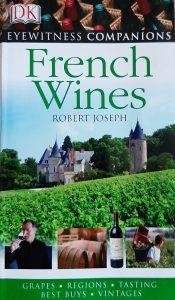
Wine tourism is becoming a big business today. Before, 15 years ago, when I was doing my book, the wine tourism, in particularly in west Europe, was rudimentary. Bordeaux had very little to offer, for example, no hotels, no restaurants, in the middle. Yes, of course 15 years it is a long time and anyone in wine production and who still does not think about wine tourism or maybe decided not to do it, for their reasons, have some doubt on was that a good choice. But in the same time, there are a lot of people who are doing it really badly, in Europe in particular.
America was the first who did wine tourism. Now in the rest of Europe everybody is following it, but actually America in this rivalry come too far, f.e. in Napa Valley now there are too many places with developed wine tourism, they are all competing with each other. The wineries are confused, what else they could do, because just having a good wine tourism offer in a wine road full of other places doing quality wine tourism it is like having another pizza restaurant when there are 15 more in a small area.
We need to learn from Americans, we have a long way to go, before every winery in, let’s say, Bordeaux will provide a with really good tourism experience. So yes, wine tourism has evolved, I have expected some places to develop faster, but they have not. But yes, looking to the big picture wine tourism has developed enormously.
And let’s be fair, my book… my brilliant book (smiling) has not been re-printed. There are also not many other books on wine tourism that became particularly popular. People rather go online; they will try to find something there.
Yesterday I did a meeting with people from Gambero Rosso, they are doing a guide to restaurants´ wine lists with Italian wines. It is a kind of a wine tourism thing as well. But there is no such thing as Gambero Rosso doing a wine tourism guide.
It is not as big as a sector, as maybe I thought, and a lot of people thought earlier. It is like a newspaper and the sports pages in newspaper. Some newspapers are having more sport pages, others less. But my newspaper still exists apart from the sport pages.
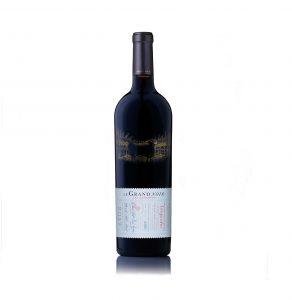
I sometimes feel old, I mean not physically old, but more like an old wise man when I am thinking on how far we have come in a short time. I have been around for a long time. The world has changed dramatically.
It is not so much regions, as wineries. F.e. talking about East Europe: in Moldova Purcari offered a really good experience a long time ago, Castel Mimi is a wonderful place to visit, it is really beautiful – the hotels rooms, their restaurant offering. I think of individual places, happening around the world. In Bordeaux is really interesting the Chateau Smith Haut Lafitte, they started their restaurant 25 years ago, it was a revolution what they did, and nobody followed! If it would be California everyone immediately would start to be curious: “What they are doing, how we can implement something similar if it works…”. But it did not happen in France!
We did not see an explosion; it is happening quite slowly. I think the wine tourism revolution outside of the New World did not necessarily happened, I think generally it has been individual businesses that do, individual producers, rather than entire destinations or regions.
South Africa has done a lot. Argentina, New Zealand, Chile, all of them have just followed what California did.
Talking about recommendations to Eastern European companies interested to grow their wine business. Act locally, think globally. I think if you are in Moldova you need to try to sell their wines to neighbors first. Don’t forget your local map. Do that well, do that better. Spending a lot of money in New Yok maybe it is very appealing, but maybe there are more opportunities for you when you spend more money in your local communities. F.e., I am now selling more wines in Russia then in America, which is crazy, how did that happen?! Because these countries are also getting richer, they learn to more appreciate wines. So there is wine a market within themselves. And for wine tourism it is also very relevant, because many people are not tending to travel very far. Use that as your point of strength going to other places. Choose your other places strategically. Georgian wine is doing brilliant in Brooklyn and in New York, and it is not doing very well in Denver and Huston. Choose where you are going, analyze your results. And because of the God representative on Earth, Mark Zuckerberg, now we have the digital marketing tools, such as targeting, we can easily say: “I want to communicate to this type of people in this type of places!”
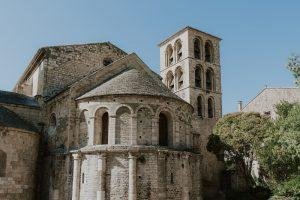
It is simple. If we use elite in an expression, whether it is elite restaurants, elite wineries, there are places where you go and have a burger or salad, other times you go to what we call a white table clothes restaurant, you know that you have to dress a little bit better, and you are going to spend not 10 eur but 100 eur on a meal. Talking about wine places, basically it is about places where the quality of wines and image of the wine is on another level, maybe you will have more Champagne, all Champagne probably considers itself as elite, the wine list will be a bit more sophisticated. When we go to Burgundy or Barolo, we see more smart wineries, the owners may not be aiming to offer a luxury product, they just produce really outstanding wines, but actually they are producing a luxury product. If you pay more than 50 dollars or euros for a bottle of wine, it is already a luxury.
Essentially what wine tourism should be about is direct selling. It is about making relationships with consumers. We, as wine producers, are more interested to sell directly. We are moving to times of subscriptions, when my favorite wineries will simply will send to my doors their wines every couple of months, it is already happening in America. This is a relationship and this is what wine tourism is good for and should be largely about it is about selling wines to people who found a reason to buy from you rather then to go to the store or buy from someone else. I think this is the thing that not everyone in the industry fully understood yet.
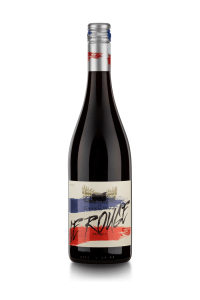
There is no logic to buy a bottle of wine for 50 or 100 eur. It takes a maximum of 90 minutes for two people to finish the bottle of wine. And your 100 euro or more is just gone. There is no logic. There is no logic to buying a ticket to watch my football team play with Chelsea. But would I pay 50 or 100 if my team is in a final? Of course! Will I go to the opera, will I go to the theater…? How long is a play? 90 minutes. It is an experience.
So to me the best experience of wine tourism is these minutes, like when you are going to a very bumpy road on a jeep, or horses or when I was in a Switzerland last week on the steepest vineyard you can imagine, and you are standing and looking down feeling amazed and fear in the same time. Of course you remember that! Being with a girlfriend at the top of the Hermitage, Rhone, in a picnic. It is something that is locked into me. But everything I have just said is relative, probably it would be different to someone else.
It is not about being in a winery where everything is organized, with some museum, where I am supposed to buy some wines and cheese and supposed to feel happy. No, it is about something else. Anything, where people have to put some certain type of method – it is not that. It is more about me doing something, seeing something, experiencing something, challenging myself with something. It is personal and it is unique, and this happens in this particular moment.
There is a very good story illustrating what I have just said. I completely love it and it is something that everyone could do it regardless of the budget and resources! It happened to me in South Africa. A very clever winemaker came with this idea: when you have a visit with your children, you call a child and ask him if would he like to make a plant. They take the children away while the parents are tasting their wines having their experience. And the children could choose what plant they would like, it could be tomato, cherry tree, whatever depending on the time of the year. Then they do it, children get back to the parents, and then you ask if the parents can share the email and we will send you some pictures showing how these plants are growing. Maybe we can make some posts. Oh my God, I love this idea!
The emotional component of your child is doing something, which is involved in planting, in agriculture. Also you take children away to give their parents more space to enjoy the tasting. It is so smart. And it turns that the child remembering what he did in the winery and remembering it asking parents to return back and to check how is his plant doing. I love it. I love this thinking; you need to have a vision to do something like that.
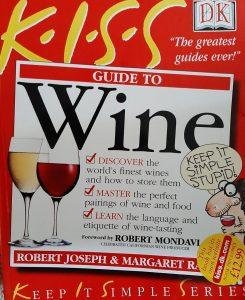
I would like someone else do it (smiling). It took a lo-o-ot of work. It was when my second child was born. And that was my last book, I have not done books in 15 years, I did many other things. I am actually working on book at the moment, a very different kind of book. It will be on what is wine and the future of it.
* Wine Travel Guide to World by Robert Joseph (Author)
Footprint’s Wine Travel Guide to the World takes you around the globe to over 650 of the best vineyards, wineries, museums, restaurants and bar: from the grandest estates of Bordeaux to the high-altitude vineyards of Argentina; from Beijing wine bars to the tomb of a wine-loving pharaoh. Extensive color photography and mapping throughout adds to the enjoyment of the tour. Renowned wine author and journalist, Robert Joseph, has compiled this remarkable list of the world’s great wine experiences as well as providing the history of each region, tasting tips, wine and food recommendations, soil and grape information and practical travel details.
Photo: Philippe Labeguerie
08.02.2026
27.11.2025